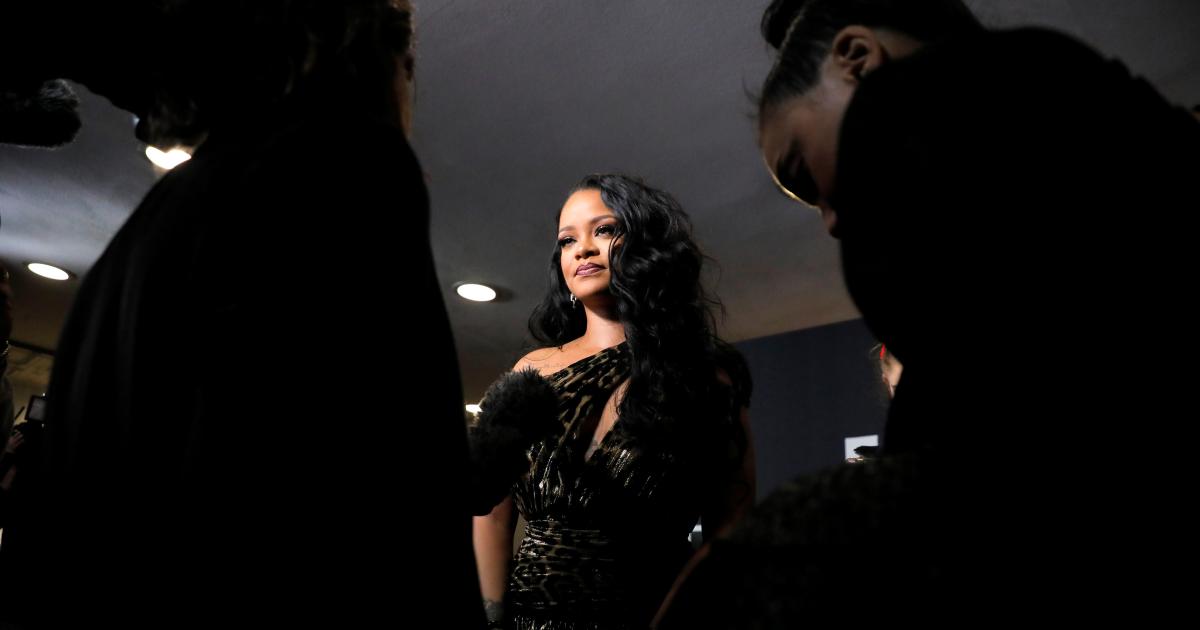On Friday, May 27, Rihanna’s Fenty Beauty officially launched in Africa. Customers in Botswana, Ghana, Kenya, Namibia, Nigeria, South Africa, Zambia, and Zimbabwe can now buy the company’s beauty and skin products, which come in dozens of shades for Black and brown people, at stores in African cities instead of having to ship from the US.
Fenty’s launch was a series of invite-only events held at popular hangout spots in Lagos (WBar), Nairobi (Social House), and Johannesburg (Monarch restaurant). But it did not entirely sit well with some beauty enthusiasts.
“A beauty brand launched in a new country and you could count how many [makeup artists], skincare, and beauty influencers and creators that attended the launch party,” said Golibe Nwigwe, a Nigerian makeup content creator with 10,000 Instagram followers.
There were other complaints like hers. In Nigeria and Kenya, makeup influencers said Fenty’s Africa launch was subdued. Some comments from people in Zambia and Zimbabwe suggest that Fenty—or its country-specific public relations partners, who planned the events and created the guest lists—could have done more to lean into existing goodwill and generate excitement.
Fenty shunned makeup influencers
Most complaints about Fenty’s launch were by makeup content creators who were not invited to launch events. “Fenty beauty is a skincare and makeup brand. By not inviting beauty and skincare influencers, the publicity wasn’t channeled in the right direction, to the right audience,” Onaopepo Babarinsa, who vlogs to 30,000 Instagram followers, told Quartz.
The 22-year-old Nigerian’s Twitter thread made her one of the most vocal critics of Fenty’s launch in Nigeria. Stephanie Cherono, a makeup artist with 51,000 Instagram followers, did the same in Kenya: “People who don’t even wear makeup let alone fenty were at that event.” She too was not at the launch event in her country, though Quartz could not confirm whether she was invited.
“I believe it was a huge oversight on the part of the Fenty team because it cost them an important opportunity to build goodwill,” Edward Israel-Ayide, a public relations consultant in Nigeria who was not involved in the Fenty event, said of the failure to include makeup influencers.
But for the most part, Fenty is being spared the blame from influencers and consumers. Instead, the PR agencies behind those events are catching the heat. In Nigeria’s case, this was Livespot 360; the company managed a Cardi B concert in Dec. 2019 which, despite some critiques that it was too exclusive, was mostly a success.
“I wouldn’t put any direct blame on Fenty. They obviously thought Livespot was capable of handling the project; maybe because of their visibility in the entertainment scene,” Temi Solomon, a brand strategist at Probot Digital also not involved in Fenty’s African launch, told Quartz.
Livespot and Fenty did not respond to requests for comment.
Why does any of this matter?
Fenty is owned by Rihanna, a billionaire. She is popular in Africa and has visited South Africa, and Malawi for concerts and a humanitarian campaign respectively. In a video for the launch, she made a point of saying she could “not wait to see” Africans using Fenty (she was not in Africa for the launch).
Babarinsa’s view is that, one week after the launch, “a lot of people don’t know that Fenty beauty has launched in Nigeria or the prices of the product in Naira and how the products perform in our climate.”
Fenty does not own the stores where its products are sold in Africa. In each country, it gave exclusive distribution rights to the biggest cosmetic retailers. The company tweeted a list of those stores on the day of the launch.
But with makeup influencers sidelined, Fenty loses out on publicity that would have continued days after the launch, with follow-up reviews and tutorial vlogs, influencers and some observers said.
Livespot has reportedly tried to make up for its oversight. After the launch, it sent emails to makeup influencers it did not invite to the Nigeria launch, soliciting content, a move Solomon dubbed “a serious joke.”
“It’s even more insulting that they’re not offering to pay for the content. They think we’d jump at it because it’s Fenty Beauty by Rihanna,” Babarinsa said (she has not been contacted by Livespot).
Will this affect Fenty’s sales in Africa?
Despite the missteps, Israel-Ayide, the Nigerian PR consultant, thinks Fenty had a successful launch in Africa and expects it to do well. “It’s a global brand being promoted by one of the world’s most recognizable musicians. Whatever was missed with the launch can be easily rectified with follow-up campaigns or PR activities.”
Babarinsa expects a down side. “Personally, I rely on influencer marketing and online reviews before purchasing an item. So these things are bound to affect patronage.”
To some degree, the conversation is a referendum on influencers and the role they play in the growing African beauty market. PR firms seemed to have prioritized actors, reality TV stars, and influencers who cut across multiple creator circles over niche makeup influencers with lesser followings.
But it’s more pressing since the company is Fenty, a self-professed inclusive Black beauty brand in both its product development and marketing. These influencers are asking the company to reflect on how it lives up to those values.
Some may not care much for that, anyway. “After doing makeup [for some guests], I carried my assistant, booked a ride home and slept. At least, that was more productive than that launch,” Lagos-based makeup artist Mfonobong Ekanem tweeted of her experience on the night of the launch.




